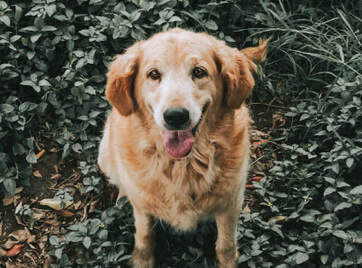The Responsibility of Pet Owners
With the arrival of summer, the long days and sunny weather, enjoying what our great state offers in its parks, trails and camping areas should not be overshadowed by the unpleasant sight of bags full of dog poop abandoned in public areas by pet owners.
Anchorage has a city ordinance addressing the obligation of dog owners to collect poop from their pets while in public areas. The city also has a hundred animal waste stations to which these bags can be taken once the poop has been collected. The Alaska Waterways Council states in its website that “dog feces are known to be a contributor to the impairment of water quality in many Anchorage creeks, therefore facilitating the Scoop the Poop Committee is an integral part of the AWC mission. It addresses this through education and outreach at events and in local schools. AWC also organizes Scoop the Poop Day! every April, and works to provide funding for pet waste stations throughout the Municipality.” A small gesture from pet owners can save the entire city of Anchorage, Alaska’s most populous, a lot of headache and potential illnesses. Information about this campaign can be found on the website www.scoopthepoop.org and on Facebook at ScoopthePoopAnchorage. The city of Anchorage is home to about 65,000 dogs, which defecate about three-quarters of a pound of excrement each a day. This means that the city’s pets produce about 49,000 pounds of poop daily or nearly a million and a half pounds of waste a month (about 24 tons a day, which is 720 tons per month). It is essential for the cleanliness of the streets in our city and for the health of its nearly three hundred thousand inhabitants that pet owners utilize bags to collect their pet’s waste. Immediately afterwards, they must deposit them, conveniently closed, in the collection stations or trash cans available throughout the city. A health threat Dog droppings not only tarnish the city but are a serious health hazard for all. The organic waste of dogs attracts flies, spreads disease and represents one of the main causes of water pollution in the waterways of the region. However, many bike trails, public parks (frequented by children of all ages and by the elderly), many streets of Anchorage and the surroundings of many schools suffer the “invasion” of these forgotten bags by careless pet owners, disregarding their neighbors and fellow citizens’ wellbeing and displaying disrespect for the city and its surroundings. A very simple maneuver Collecting the waste of pets is a simple maneuver. Once the dog is done pooping, the owner must open a plastic bag immediately, although there are also hygienic bags expressly manufactured to collect the waste, any plastic bag will work. You must put your hand in the empty bag and with it collect your pet´s poop. Once the dog’s waste is collected, the owner removes their hand as if removing a glove turning it inside out completely, pulling a clean hand from the bag, while the poop remains inside. The dog owner must close the bag so that it does not smell or spill. It is then taken immediately to a trash can or an animal poop waste station. In the case of being away from the waste station, pet owners must carry the bag with them until there is a place to dispose of it. There is nothing to be gained by abandoning used poop bags, as this is counterproductive. Plastic takes many years to decompose, and it creates a more serious problem in our environment. You can be cited for breaking the law The owner of a dog that does not remove their pet’s poop could be fined by the Municipality for violating care and sanitation laws. This can happen to pet owners that accumulate their dog’s waste in their own backyards, because it creates an unpleasant and unhealthy environment for their neighbors. |
